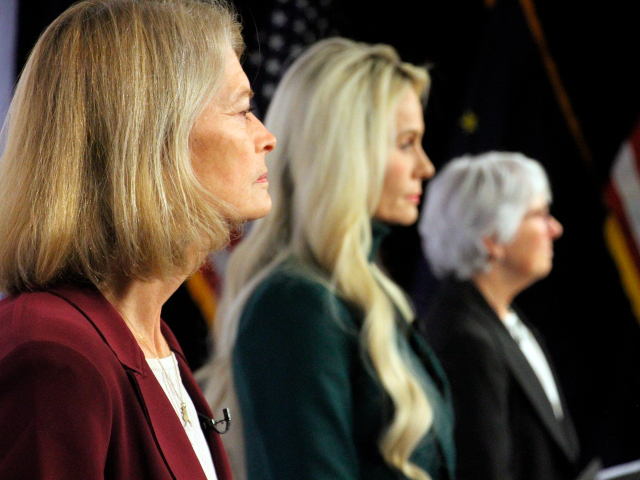
Sen. Rick Scott (R-FL), chair of the National Republican Senatorial Committee, was reportedly planning to challenge Sen. Mitch McConnell (R-KY) for the top GOP Senate leadership position until the expected red wave on Tuesday failed to appear.
Scott apparently changed his mind about leadership intentions after a runoff in Georgia appeared to be the only path in which Republicans could capture the majority, according to Politico. Scott had reportedly created a video to declare his intentions and had contacted influential Republicans to set his plan in motion.
Before Republicans’ lack luster performance on Tuesday, the momentum behind Scott seemed to be growing. Sen. Josh Hawley (R-MO) had said he would not vote for McConnell and several GOP Senate candidates had verbally opposed McConnell’s reelection. Many of those candidates appear to have lost, perhaps throwing in doubt Scott’s ability to oppose McConnell.
The McConnell-backed super PAC is one reason why Senate Republicans failed to achieve success on Tuesday. The Senate Leadership Fund defunded GOP Senate contests in New Hampshire and Arizona and placed funds in Alaska, where 21-year incumbent and pro-impeachment Sen. Lisa Murkowski (R-AK) is running against conservative Kelly Tshibaka.

Sen. Lisa Murkowski, left, a Republican, looks on Thursday, Oct. 27, 2022, prior to a U.S. Senate debate in Anchorage, Alaska. She faces Republican Kelly Tshibaka, center, and Democrat Pat Chesbro, right, in the general election. (AP Photo/Mark Thiessen)
McConnell’s strategy appeared to be less about winning the Senate than supporting his establishment allies who would help him keep the leadership position. McConnell’s team has scapegoated its Tuesday’s lackluster performance by claiming many of the GOP candidates were of poor quality. While that may be true in some cases, Murkowski is a vulnerable Alaskan candidate and will likely only survive her reelection because of McConnell’s flood of support and the state’s ranked choice voting system. Tshibaka is currently leading Murkowski on the first ballot by a few points.
Scott’s spokesman, Chris Harline, confirmed to Politico that Scott had been asked by “lots of people” to run for leader but did not acknowledge Scott’s intentions to combat McConnell. “Lots of people have urged him to consider running but his focus is entirely on the ongoing counts in Arizona and Nevada and raising money for the Georgia runoff,” Hartline said.
One of McConnell’s top lieutenants, Josh Holmes, ripped Scott for even having the thought of challenging McConnell’s leadership role. “If this is true, most of our voters will be very disappointed to learn that while they were focused on winning elections, their campaign chairman was plotting an ill-fated career advancement,” Holmes told Politico.
Senate Republicans are scheduled to vote on McConnell’s leadership position on November 16. Only eight percent of voters view McConnell favorably, while 80 percent view him unfavorably.
Under McConnell’s leadership, the national debt has grown by over $20 trillion, illegal immigration has continued, and real wages for American workers have remained stagnant since the 1970s. Obamacare was enacted in 2010. Big banks were bailed out in 2008, and social media companies have silenced individuals without repercussions. Dr. Anthony Fauci has not been held accountable for allegedly lying twice to Congress.
Follow Wendell Husebø on Twitter @WendellHusebø. He is the author of Politics of Slave Morality.




